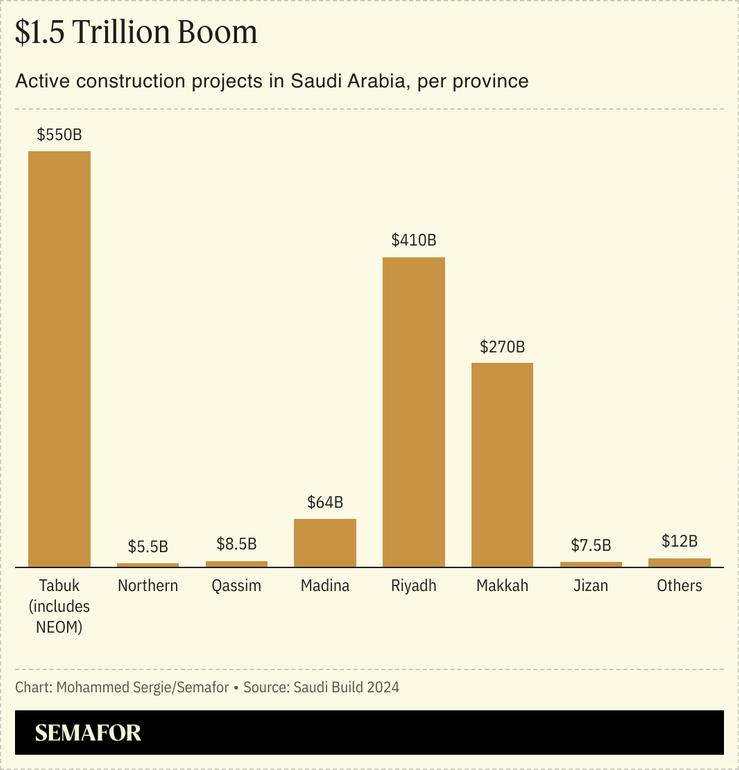The Scoop
A Chinese company is set to open a steel plant southwest of Riyadh, marking a shift from Chinese firms securing and executing construction contracts to establishing local production.
Bunyan, a unit of China’s Rongsheng Group, will produce 500,000 tonnes a year and start operations within months, Kai Wong, a Riyadh-based executive at the company, told Semafor. The plant will produce energy-efficient rebar and wire rods used in construction projects, and will be the first of its kind in the kingdom, Wong said. Previously, Saudi Arabia had to either import ready-made material, or reheat and process steel billets and slabs into the desired shape.
In this article:
Sarah’s view
Beijing is gunning to solidify its place in Saudi Arabia’s fast-growing construction market, projected to become the world’s largest with a forecast value of $181.5 billion in 2028, according to real estate consultancy Knight Frank. The kingdom’s push to complete key projects before Expo 2030 and the men’s soccer World Cup in 2034 is creating a gold rush for construction firms. NEOM alone is expected to consume a fifth of the world’s steel output.
Saudi state-owned entities have increasingly partnered with Chinese firms like Baoshan Iron and Steel Co.: Aramco recently acquired a 10% stake in a petrochemicals maker for $3.4 billion, Diriyah — the ancestral base of the House of Saud that’s being developed into a cultural and tourist destination — awarded a $2 billion contract to a Chinese-Saudi partnership, and the Saudi National Housing Co. — which is developing a $12 billion project — signed a deal with China Machinery Engineering Corp. to build 20,000 housing units.
The growing footprint was evident at Build Saudi, an industry exhibition held in Riyadh this week. Chinese companies far outnumbered those from India, Germany, Turkey, Indonesia, and the Netherlands.

Know More
Al-Kharj Industrial City — where Bunyan’s new facility is located — exemplifies Sino-Saudi collaboration. The 24-million-square-meter district southwest of Riyadh can accommodate around 500 factories, and has attracted significant Chinese investment.
Bunyan will use a continuous casting and rolling process, which shapes molten metal into billets or slabs, and then into final products without additional heating, which Wong said is a more energy-efficient method of steel molding.
The Bunyan plant is part of Saudi Arabia’s efforts to attract manufacturers and localize key stages of its construction industry, in order to reduce its reliance on imports and expand industrial capabilities.


